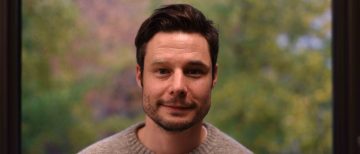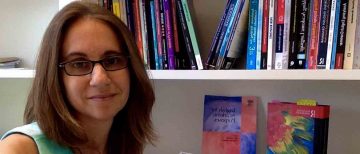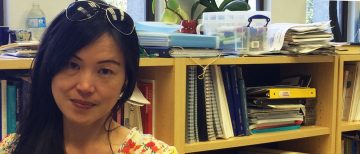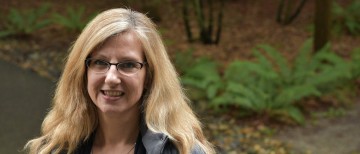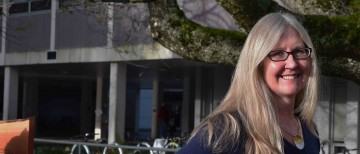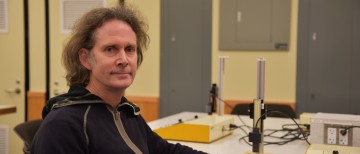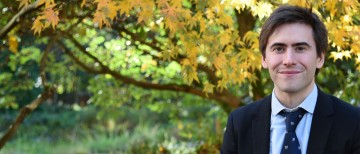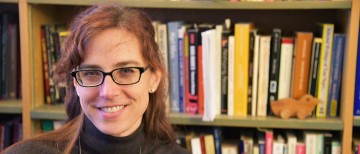On matching curricula with learning outcomes in sustainable food systems education programs
Will Valley used an educational framework as an analytical lens to bring coherence to the theories and practices that guide LFS programs.
On supporting academic English development across disciplines
Sandra Zappa-Hollman helped create a program that facilitates the integration of international English language learners at UBC.
On the effects of Progress Testing
HsingChi von Bergmann helped design a test that could map a student’s progress in Dentistry throughout their degree. She says UBC is one of two universities to first implement this type of testing in the field of Dentistry.
On overcoming fear of research methods
Silvia Bartolic will use a flipped classroom approach to allow for more in-class time for problem-based learning activities.
On collaboration through comparison
Tiffany Potter wanted to investigate how to give every student in large classes a personal, active-learning experience.
On iterative learning
Doug Bonn believes first-year science labs are good for teaching about how scientists work with data and models.
On the role of humanities in creating global citizens
Michael Griffin has been researching the impact of humanities education on students’ critical thinking, self-esteem, and capacity to empathize with others.
On peer feedback and writing better
Christina Hendricks knew about the positive impact of peer feedback, but she was interested if this knowledge transferred between assignments.
On concepts first, jargon second
According to Megan Barker jargon is a problem in science teaching. So she designed an experiment to see if there was a better way to teach technical vocabulary.
